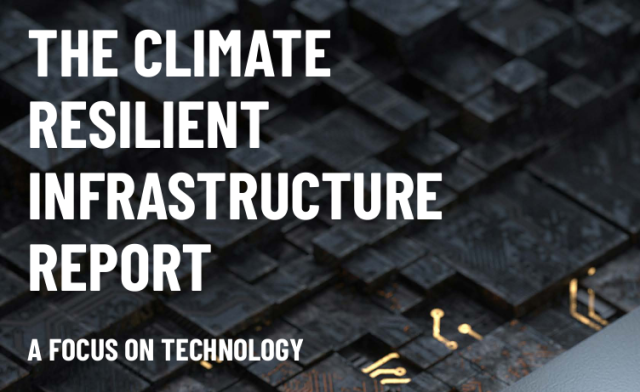
News and Media

COP29 Activities supported by NCEO

Staff from the National Centre for Earth Observation are playing an active role in science for COP29, particularly in reviewing and explaining the valuable information from satellites.
NCEO welcomes statement to COP on behalf of Earth Observation community delivered by the UK
As Chair of the Committee on Earth Observation Satellites (CEOS), the UK Space Agency delivered a mandated annual statement on behalf of CEOS and the Coordination Group for Meteorological Satellites (CGMS) during COP29 in Baku, Azerbaijan. NCEO staff supported the CEOS preparations for the statement.
COP29 marks the 29th annual Conference of the Parties to the United Nations Framework Convention on Climate Change (UNFCCC), scheduled from November 11-22, 2024.
The CEOS/CGMS statement highlights the vital role that satellite data plays in observing and understanding Earth’s Climate. With global coverage, satellites are indispensable for monitoring land cover changes, temperature trends, sea level rise, sea ice melt, and extreme weather events.
As demand for climate data grows, the world’s satellite framework must also evolve to keep pace. For example, reducing methane emissions requires information from a number of different satellites – both publicly and privately owned. CEOS and CGMS Agencies are actively developing and coordinating the satellites, ground systems and standards to meet these needs.
COP is a crucial global event where nations come together to discuss and address climate change. It serves as a platform for countries to negotiate and commit to actions to mitigate the impacts of climate change and take informed action. Satellite data informs the negotiations by providing trusted information.
To find out more about the statement click here
Prof John Remedios (NCEO Executive Director) comments:
The international community of space agencies are committed to long-term satellite missions which can bring us up-to-date information on the planet and narrow uncertainties in future predictions. In the next years, we believe it is vital to improve monitoring of methane and other greenhouse gas. We will will also support efforts to improve early warning and resilience to heat stress and wildfires. International collaboration is at the heart of these activities.”
ICSI publishes Climate Resilient Infrastructure Report: A Focus on Technology during COP29, with a focus on heat stress

We are delighted to have contributed to the publication from the International Coalition for Sustainable Infrastructure (ICSI). Our UK Space Agency-backed project on Mapping Urban Heat Islands, worked on by the NCEO and University of Leicester Land Surface Temperature team has been showcased in the report. Launched yesterday at COP29, Issue 3, A Focus on Technology, showcases platforms, tools and emerging digital technologies that advance climate-resilient infrastructure, as well as projects and initiatives that have incorporated them. The report explores how digital technologies can enhance decision-making for climate resilience and adaptation using the resilience phases prepare/respond/recover/adapt as framing.
Using Earth Observation (EO) technology, including satellite data from thermal infrared sensors, we have provided critical insights into land surface temperatures nationwide. This data allows local governments to identify high-risk heat stress areas in densely populated cities, informing urban planning efforts such as tree planting, green space creation, and building retrofits with cooling technologies. By mitigating the UHI effect, our work supports the UK’s climate adaptation goals and helps protect vulnerable communities from the growing impact of extreme heat waves linked to climate change.
The Climate Resilient Infrastructure Report series was first launched in May 2023 in an effort to report progress on the state of climate-resilient infrastructure and showcase best-practice case studies and initiatives from around the world. The series contributes directly to the UNFCCC Race to Resilience campaign, which seeks to catalyse action by nonstate actors to build the resilience of 4 billion people from vulnerable groups and communities to climate risks by 2030.
You can access the full report here.
National Centre for Earth Observation Brings Environmental Research Expertise to COP29

NCEO’s Prof Heiko Balzter is leading the University of Leicester delegation at COP this week. The Leicester delegation, representing leading expertise in satellite Earth observation, land use, sustainability, and climate policy, brought valuable insights to the Blue Zone—the formal space for UNFCCC negotiations and critical climate discussions.

Professor Heiko Balzter, Director of the Institute for Environmental Futures, attended the event on behalf of the University of Leicester and National Centre for Earth Observation. His ground breaking research in monitoring global forest carbon has significant applications for climate mitigation, including a forest alert system from space adopted by the Kenyan government, which has dramatically reduced illegal deforestation in coastal regions. He also co-leads the UK’s Land Use for Net Zero, Nature, and People (LUNZ) Hub, where he works to turn scientific evidence into policy to promote sustainable land use and carbon reduction.
Professor Heiko Balzter comments:
It’s clear we’re not on track for the 1.5°C goal of the Paris Agreement, but we must still strive to limit warming as much as possible. My hope is that COP29 will build momentum for substantial emissions reductions that will push us back toward a net-zero trajectory.””
Prof. John Remedios on the Science and Politics of Climate Change: A BBC Radio Leicester Interview


NCEO Director Prof. John Remedios spoke to Ben Jackson on BBC Radio Leicester on 11th November 24 sharing insights with on the challenges and critical work behind monitoring global temperatures. He delves into the science of tracking Climate Change impacts and discusses the crucial role of policy in steering us toward NetZero targets. In his interview, Prof. Remedios emphasizes how politics can both drive and hinder climate goals, highlighting the need for clear, data-informed decisions to keep global warming in check. As world leaders gather at COP29, science and policy must align to create actionable, lasting solutions.
You can listen to the interview, by tuning in at 2.08:10 sec
Share this article



Published by Fazila Patel
Digital Communications Officer
University of Leicester
Latest News and Events



